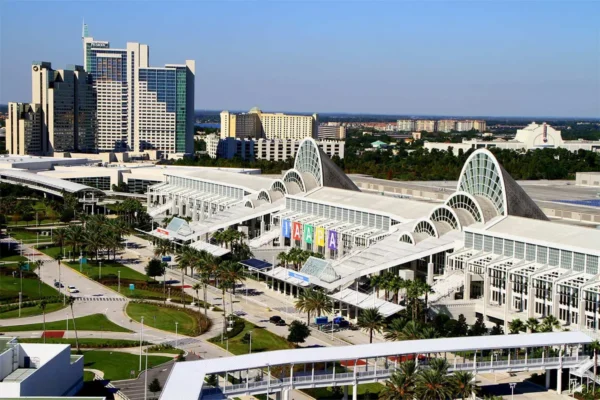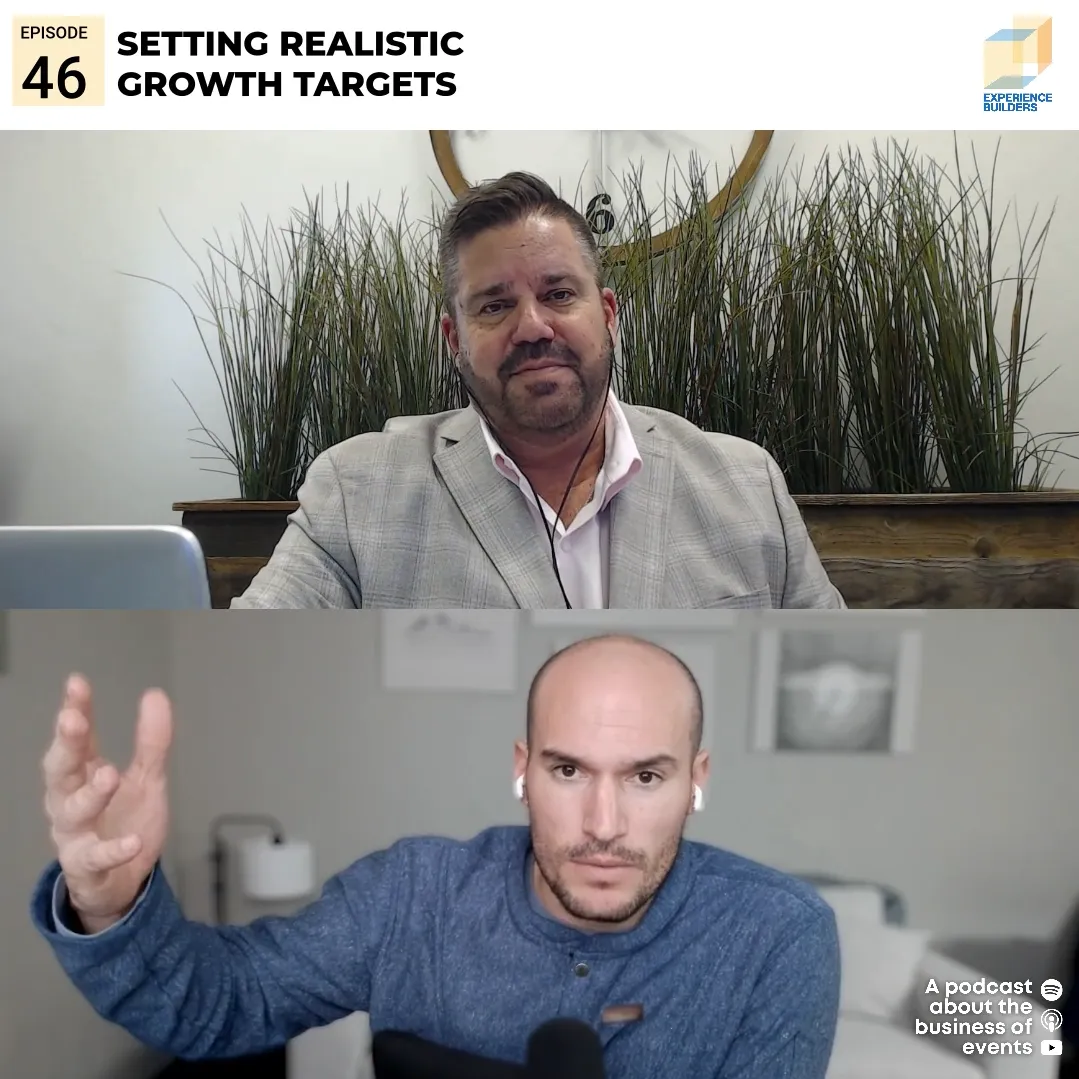(Image Left to Right: Oxana Dudchenko, Bridget Switzer, Christina Domino-Philpott)
by Glenn Hansen
Sustainability requires a collective effort.
Given the importance of the Net Zero Carbon Events initiative, Exhibit City News (ECN) recently had the opportunity to chat with three next generation leaders regarding their views on the current state of sustainability and decarbonization of the events industry. The next generation of leaders feel strongly about climate change and are expecting the industry to have this as a priority. If so, ECN wondered how will this focus on sustainability change events, what will the industry see more of, and what will be seen less?
ECN spoke with Christina Domino-Philpott (above right), Director of Events at Visit Anaheim; Oxana Dudchenko (above left), Senior Event Coordinator, CIEE, Council on International Educational Exchange; and Bridget Switzer (above middle), Director, Environmental Strategy at Maritz.
Operate leaving a lasting positive effect
ECN: What does sustainability mean to them in the context of the events industry?
Dudchenko: I used to view sustainability through the lens of the triple bottom line—people, planet, and economy—and believed that an individual could drive significant change. However, my experiences in the industry have taught me that truly embedding sustainability into an event requires a collective effort. In the events industry, this means rallying not just your management and colleagues but also venues, caterers, and contractors to work together as a cohesive team. While individual efforts can produce great results, they often lack longevity. To me, sustainability in events is like an “elective module” graded entirely on teamwork—it’s all about collaboration and shared responsibility.
Domino-Philpott: For me, sustainability means understanding the impact our events have on both the environment and humanity. As event professionals, I believe we have a responsibility to minimize waste and reduce the carbon footprint of our programs while also being mindful of the social environments we create. It’s about balancing environmental stewardship with creating meaningful, positive experiences for people.
Switzer: I completely agree with Christina. Sustainability in the events industry is about asking, How can a group visiting a destination leave it as good as, or even better than, they found it? It’s about ensuring that the way we plan and execute events has a lasting positive impact—not just financially but also environmentally and socially. Achieving this requires intentional collaboration with our partners and holding everyone accountable to clear sustainability standards. Looking ahead, I think our industry needs to evolve to consider the full lifecycle of events—from planning through execution—and to prioritize the positive and lasting impact we leave on the destinations we touch.
Sustainability is climbing the list of priorities.
ECN: Do you believe sustainability is becoming a priority in the events sector?
Switzer: Sustainability is definitely becoming a priority in the events sector. While it may not be at the very top of everyone’s list yet, it’s steadily climbing. This shift is driven partly by people wanting to do the right thing and partly by regulations pushing organizations toward change. As a result, many companies are setting ambitious net-zero targets and reevaluating key aspects of their operations, such as business travel and event planning. It’s clear that our industry is beginning to innovate and adapt in meaningful ways.
Domino-Philpott: We’re making progress on sustainability in the events sector, but there’s still a lot of work ahead. Like with any significant change, awareness and access to actionable tools are critical. Some industries are leading the charge, and we’re starting to see trends in the events world as well. One such trend is the shift toward exhibit rental fabrication. Companies are now purchasing only the customized elements they need, instead of entire exhibit structures. This approach is far more sustainable, and it’s encouraging to see it gaining traction on the tradeshow floor.
Dudchenko: Sustainability is becoming a priority in many parts of the world, but progress remains uneven. Some countries are easier to work with because they already have supportive infrastructure in place. For instance, at an event in Berlin, the hotel provided waste-sorting bins as part of their standard practice, which made our job simple—we just reinforced their efforts. Similarly, at a hotel in London, I didn’t need to adjust the conference menu because it already included diverse vegan and gluten-free options.
In locations like these, it’s easier to adopt sustainable practices with minimal friction, and these methods gradually evolve into industry best practices. However, the pace of adoption varies significantly by country. Even so, I firmly believe sustainability is the future of the events industry. More and more people are becoming concerned about the environmental footprint we leave behind, and this growing awareness will continue to drive meaningful change.
Trusted companies prioritize sustainability
ECN: Thinking of the changing demographics of the tradeshow industry and climate consciousness in general, how do you see these impacting events going forward?
Switzer: People increasingly trust companies that prioritize sustainability. I believe we’ll see a major shift in how individuals choose who they do business with and how they plan their events and tradeshows. Suppliers who focus on the entire lifecycle of materials and adopt sustainable practices will stand out. Forward-thinking companies that implement innovative, eco-friendly solutions will remain top of mind.
Even the design and materials of exhibits are likely to evolve. I think there will be a growing preference for sustainable, forward-thinking venues and locations. Those that lag behind in adopting sustainable practices or infrastructure will feel increasing pressure to adapt in order to stay competitive. The industry is moving toward a future where sustainability isn’t just a consideration—it’s an expectation.
Dudchenko: Sustainability is no longer a passing trend or a “window of opportunity”—it’s becoming a necessity, especially for younger generations. With access to a wealth of information, people are connecting with sustainability on a personal level and using it as a driving force in their workplaces. For many young professionals, the wastefulness of the events industry is hard to ignore, particularly at tradeshows where booths and marketing materials are discarded en masse after breakdowns. This heightened awareness makes it impossible to turn a blind eye to the long-term environmental impact.
I’ll never forget an experience early in my career when I saw untouched Beef Wellingtons being thrown away at an event. That moment has stayed with me and shaped how I approach planning events. Now, I always adjust final food and beverage numbers to minimize unnecessary waste.
In my view, more people—even without formal sustainability training—will start incorporating climate-conscious practices into their work. Not because they’re forced to, but because they genuinely believe it’s the right thing to do. It’s deeply rewarding to create an event from scratch and walk away knowing you’ve achieved, say, a significant reduction in waste—or even avoided a single Beef Wellington ending up in the trash. These small wins add up and inspire others to follow suit.
Combining storytelling with meaningful data resonates with people.
ECN: Do you feel empowered to influence sustainable decisions in the events in which you are involved?
Domino-Philpott: Absolutely. I’m fortunate to work for a forward-thinking organization that is on a fast track for growth, both internally and externally. We’ve coined this period our “Golden Decade,” and it’s an incredible opportunity to establish a sustainable path for our tradeshows and events. Aligning our sustainability message with our partners and clients is a central focus, and it’s exciting to be part of such a positive movement. The potential impact we can have on our community is truly inspiring, and I feel empowered to help shape that change.
Dudchenko: I work at a large nonprofit organization where events serve a specific purpose, though they’re not our primary focus. This means I don’t have much influence over broader operations, but I do have control over sustainable practices within our events. For instance, I’ve implemented changes in conference food selection, improved waste management, and more. I’m fortunate to work with colleagues and directors who share my values, which makes all the difference. Their support and encouragement empower me to drive these initiatives forward. On days when my passion wavers, they hold me accountable and remind me of the importance of consistent, small steps. This collective mindset helps me stay focused and reinforces the value of making steady progress toward sustainability.
Bridget: In my role, I’m empowered to measure emissions, provide recommendations, and work internally to educate others on sustainable practices. What I’ve found particularly impactful is presenting real data alongside tangible, real-life examples. Combining storytelling with meaningful data shifts perspectives and inspires others to think differently, often leading to actions they might not have considered before. That said, one of the biggest challenges with implementing sustainable practices is the additional time and effort they often require. There simply aren’t as many readily available options or suppliers in the market. It’s not that I don’t feel empowered—it’s just that sometimes the time constraints or limitations in the supply chain make it difficult to push these initiatives forward, even when the will is there.
Event planners must ask for sustainable solutions from our event partners
ECN: In what ways do you think sustainability trends will shape the future of events?
Domino-Philpott: I believe we’ll continue to see a growing awareness of sustainability, accompanied by more meaningful actions across the industry. To drive these changes, it’s up to us as event planners to take the lead by asking for sustainable solutions from our event partners. This starts with organizations defining their own sustainability and emission goals and then requiring their partners to meet those standards.
As Oxana mentioned earlier, sustainability is a collaborative effort. When everyone—from planners to vendors—works together, we can make significant progress. I’m excited about what the future holds and the role we can play in shaping it.
Dudchenko: I think sustainability trends are set to become the standard in the events industry. These practices not only add meaning to events but also bring fresh, innovative ideas that make them more exciting. I’m already seeing many great examples: diverse speaker panels, wheelchair-accessible venues, quiet or meditation rooms, recycling stations, and the elimination of disposable plastics like cups and cutlery.
I’ve also noticed a shift toward using upcycled or recycled materials for exhibition booths. Some companies are creatively reusing the same materials to design their booths differently each year, which is incredibly clever. Whenever I see that, it catches my attention and inspires me—I always think, “Wow, I want to do that for my event!”
Start with initiatives that require minimal approval.
ECN: What role do you think younger professionals can play in promoting sustainable practices in the industry?
Dudchenko: Young professionals might not always have the authority to make significant decisions about their events, but they can still create meaningful change. My advice is to start small with initiatives that require minimal approval—focus on the “low-hanging fruit.” When appropriate, follow the mantra: “ask for forgiveness, not permission.”
Simultaneously, begin networking within your organization to identify colleagues who share your passion for sustainability, especially those with decision-making power. These allies can be invaluable—they can support you during moments when motivation wanes, help you identify opportunities for sustainable initiatives, and provide insights or resources you might not have access to otherwise. By building these connections, young professionals can amplify their impact and promote sustainable values across multiple levels of the organization.
Switzer: If younger professionals consistently advocate for sustainability, change is inevitable. It’s up to us to make our values known, think creatively, and inspire seasoned industry professionals to view events through a sustainable lens. Take initiative—implement changes where you can, no matter how small, and then share your story. Showing the tangible results of sustainable practices can inspire others and help build momentum across the industry.
Companies looking to attract and retain talent must take sustainability seriously.
ECN: How important is it for event companies to align with sustainable practices to attract young talent and attendees?
Dudchenko: Post-event survey results from the events I organize show that sustainability is a priority for only a small percentage of attendees. For most, it’s still considered a “nice to have” rather than a deciding factor. Generally, I don’t think audiences choose to attend an event solely because it’s more sustainable. However, when it comes to attracting young talent, sustainable practices are significantly more important.
Speaking from personal experience, one of the main reasons I accepted my role at CIEE was my director’s enthusiasm for and openness to sustainability. Knowing that my values aligned with those of the organization made my decision both easy and exciting. Conversely, it would be demoralizing to work for a company that didn’t prioritize sustainability if I were ever to seek a new role.
Sustainability is becoming increasingly important to my generation and the next. Young professionals today are seeking more than just a paycheck—they want to work for companies that reflect their values. Event companies looking to attract and retain top talent need to take sustainability seriously. This means not only implementing eco-friendly practices, like using reusable exhibition stands or sustainable banners, but also fostering internal changes, such as promoting work-life balance.
Switzer: I completely agree, and I’ve seen similar research indicating that younger generations care deeply about working with organizations they trust—ones that align with their personal values. This generation has grown up learning about the UN Sustainable Development Goals (UNSDGs) in school, so sustainability is ingrained in their worldview. What stands out to me is how much more educated they are on these topics compared to previous generations. Many of my peers and acquaintances have earned degrees in sustainability-focused fields, such as environmental law, science, and studies. While not all of them will go into event planning, they will certainly attend events. This means event organizations need to rethink how they operate and plan. Aligning with the values of this generation is critical not just to engage them as attendees but also to foster meaningful connections. By reflecting their priorities, event companies can create experiences that resonate deeply and draw in both talent and participants.
Make doing sustainability easy
ECN: What policies or changes would you like to see in the events industry to foster sustainability in the long term?
Dudchenko: I think event companies should consider creating positions specifically for sustainability experts and establishing Green Teams. This would not only demonstrate a genuine commitment to sustainability but also create a dedicated space for brainstorming, experimenting, and implementing sustainable practices. A Green Team would encourage employee involvement and foster collaboration across departments. Based on my experience, I’m confident that many employees would volunteer to be part of such initiatives. People are passionate about sustainability and would embrace the chance to contribute in meaningful ways. Companies may be pleasantly surprised by the enthusiasm and innovative ideas their employees bring to the table.
Domino-Philpott: In my experience in event sales, I’ve learned that clients value working with organizations that make the process simple and seamless. The same principle applies to sustainability—the easier and more accessible we make sustainable practices, the more likely they are to be adopted. To achieve this, we need more open conversations about practical solutions and a stronger focus on education. Earlier this year, I earned a certificate in Sustainability Strategies from the Stanford Graduate School of Business, and it really opened my eyes to the opportunities available in this space and the vibrant community driving change. There are also other certifications, like MPI’s Sustainable Event Strategist Certificate and the Event Industry Council’s Sustainable Event Planner Certificate. Companies should incentivize their employees to pursue these certifications to help integrate sustainability into every role within the industry.
Switzer: In an ideal world, sustainability would be the default, not an exception. Right now, making events sustainable often requires extra time, effort, and resources, which can feel like an uphill battle. What we need is a paradigm shift—an industry-wide realignment where investment flows toward organizations practicing sustainable behaviors, making sustainability the standard. At present, there’s often a financial premium attached to sustainability, which can deter adoption. But what if we reversed this? Imagine a system where it became more costly not to prioritize sustainability. Our industry is full of talented individuals who could design regulations, policies, and systems to make this a reality. Money and demand are powerful drivers of change. If sustainability becomes both the practical and economical choice, we could drive meaningful, long-term progress.
Imagine a system where it became more costly not to prioritize sustainability.
This story originally appeared as a truncated version in the Q1 2025 issue of Exhibit City News, p. 52. For original layout, visit https://issuu.com/exhibitcitynews/docs/ecn_q1_2025/52.































